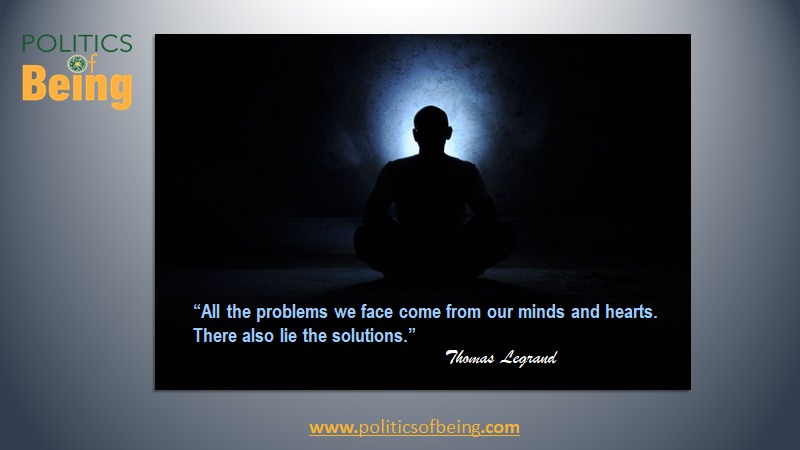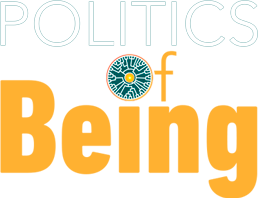
My intent with this book
From the free excerpt of the book available here :
“This book intends to share in a simple, clear, and robust way the rationale, vision, and potential policies for making the fulfillment of all beings the main compass for politics, what I call the “politics of being.” I hope to bring to the policy level and convey as accessibly as possible the urgent need for a planetary change of consciousness in response to the current global civilization crisis we are facing. […]
What we are missing today is a simple, well-defined, and logically articulated reflection, rooted in science and the conversation around politics and sustainable development, that speaks not only to the heart of people but can convince decision-makers and thought leaders. This vision remains often perceived as too embryonic, vague, and limited to inspirational discourse, and as such can be easily dismissed.
Moreover, we need an integral vision and framework that unifies a diverse array of relevant claims and initiatives. Most of the proposals that are being put forward tend to focus on specific perspectives (for example of a particular spiritual tradition) or dimensions of the ongoing cultural and spiritual transformation, such as compassion, happiness, or systemic thinking. This is impeding people from connecting all the dots and allowing this movement to become more aware of itself, get organized, and finally gain social and political traction. That is why in this book I attempt to compile and synthesize most of the many great ideas I have found in the existing relevant literature, often quoting texts to show that they all can fit into the general framework offered by the politics of being.
Finally, what we need is a policy agenda with actionable sectoral recommendations that can harness the power of politics and institutional change to bring this transformation to another scale in due time. In fact, the emphasis is often on the need for individual evolution and works at the grassroots level, leaving aside the question of institutional and policy changes. When this question is discussed, proposals are too often incantatory and not going beyond strategic visions, with no details on what concrete policies to implement. Having studied and worked in this field for the past two decades, in this book I intend to contribute to this effort.
I propose throughout this book a marriage of wisdom and science. Scientific knowledge per se cannot determine what we should strive for, the values we should hold, and the desirable direction of our societies’ evolution. Hence we have lost our ways in the blind pursuit of economic and technological development as ends in themselves. We need wisdom to guide our nations, and the role of knowledge is to validate or reject (as erroneous applications or interpretations), specify, and operationalize wisdom’s general orientations. This wisdom is to be found in the traditions that cultivated it over centuries and millennia—allowing it to impregnate our cultures, an essential condition for its legitimate and effective use nowadays—and updated to our current realities through the scientific lens.”
